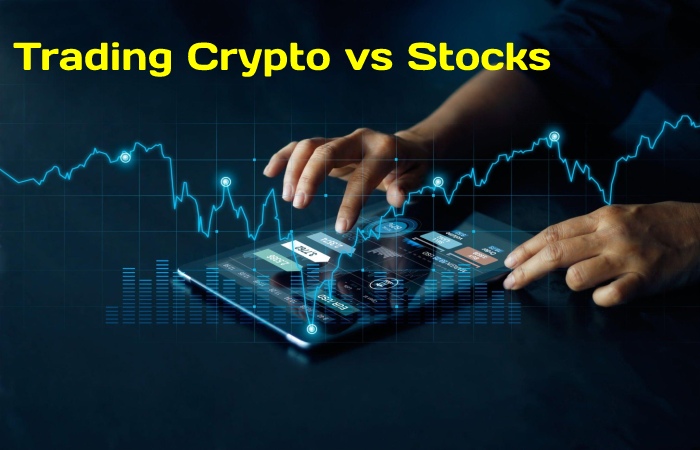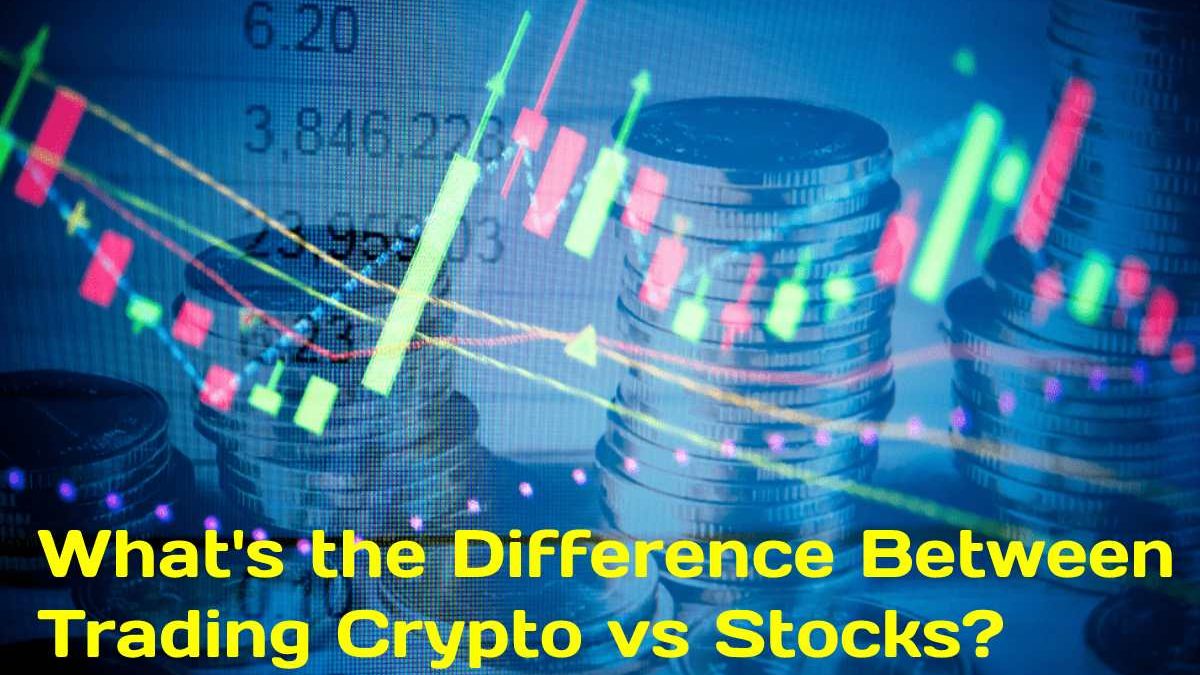Traded Assets Crypto vs Stock
· Asset type
It is the crucial difference between crypto vs stock exchanges. An exchange trades stocks or company shares, while a cryptocurrency exchange trades cryptocurrencies (digital currencies) such as Bitcoin, Ethereum, and more.
- Property ownership
Shares traded on a stock exchange represent a company’s equity. When you buy shares in a company through the stock exchange, you become a shareholder in the company. The performance of the company also determines the value of its stock.
The purchase of cryptocurrencies – whether coins or tokens – does not necessarily represent partial ownership of the company that issued them. It’s a digital currency, so its value is subjective. Cryptocurrency is much easier to own than stocks. Please read this article for more information about Bitcoin and how it works in Australia.
- Issuance of assets
Focus on local laws and company regulations; a public company may issue shares to raise money. In contrast, most cryptocurrencies have a limited number of coins or tokens. Because of this, basic economics would suggest that (all other factors taken into account) the value of viable and finite cryptocurrencies would increase as demand for them grows.
2. Market Maturity
Exchanges have been trading much longer than cryptocurrency exchanges and are, therefore, more mature. Local laws and regulations govern their activities, and the government supports sales. Companies must also provide slides to shareholders by disclosing market activity, including quarterly financial updates and minutes of shareholders’ meetings.
Due to their maturity, exchanges exhibit high trading volume and trading diversity. However, the maturity of the stock market has provided ample opportunity for some traders to dominate the trading circles. It can hurt smaller investors as the exchange rewards more prominent investors with lower fees or commissions for trading.
On the other hand, cryptocurrency exchanges are still young and in constant development. While there are moves to increase corporate regulation to boost investor confidence, many of their activities currently fall outside the regulatory and political arena. Given their short history, the volume and variety of traded cryptocurrencies are much smaller than on exchanges.

3. Volatility Crypto vs Stock
When it comes to markets, volatility often calls for extreme caution. In reality, market volatility can view both positively and negatively.
Low volatility means a more even market (and hence investment); however, this often means a longer wait for the financial reward. It is often the case in the stock market.
Large trading volumes increase the stock market’s stability, making it less vulnerable to the movements of “big fish” traders. However, geopolitical events often affect the stock market due to its ties to governments and corporations worldwide.
In comparison, cryptocurrency exchanges exhibit greater volatility. The market is new, so its ups and downs are very pronounced, making the cryptocurrency market vulnerable to the trading movements of whale traders. A whale trader is somebody who owns a large amount of bitcoin. It means the entire market can be susceptible to the trading decisions of those investing heavily. For example, when influencer Elon Musk invested $1.5 billion in Bitcoin in January 2021, the price of Bitcoin suddenly surged 17% to a new all-time high.
However, because cryptocurrencies are separate from governments and other global institutions, they are essentially isolated from political influences.
4. Market Reach Crypto vs Stock
Do you want to start trading on the stock exchange? Well, prepare to wait a while.
Given the maturity of the exchange and the numerous rules and regulations that have evolved around it, the process of initiating a trade can be time-consuming and energy-intensive.
You need to find an agent, and once you have one, you need a permit to buy and sell. In addition, trading is limited to business hours, as you can see, access to the stock market control.
On the contrary, cryptocurrency can trade anytime, any day, regardless of holidays and important events. Anyone can trade cryptocurrencies, making them much more accessible to people from all walks of life. Getting started is relatively easy; Cryptocurrency exchanges are open 24 hours a day, allowing for rapid trading movements.
5. Fees and Regulations
It is a distinct difference between stock and cryptocurrency exchanges.
Exchanges have evolved into heavily regulated markets. There are rules to protect traders and investors; to help keep the playing field fair.
In addition to the rules, fees and costs associated with going through the exchange are relatively high. Brokers charge a fee or commission; Banks charge fees to make payments, and capital gains are taxed.
Trading on cryptocurrency exchanges involves relatively lower costs. The costs associated with the transaction on the blockchain are tiny and consist only of mining fees. Therefore, the companies incur lower prices than stockbrokers when buying and selling cryptocurrencies.
Cryptocurrency exchanges are, until today, still comparatively free of regulation. However, there is support for more regulation of the cryptocurrency market. Only time will reveal the rules and regulations applied to the cryptocurrency market.
Conclusion
I want to draw attention to the Howey test. Even though it’s not 100% accurate to use in cryptocurrencies, it’s still our best. The Howey test defines whether or not an asset is considered safe by financial regulators.
But, the Howey test asks whether the value of a transaction for one of the participants depends on the work of the other.
Related posts
Featured Posts
SEO Books – 10 Best SEO Books
A significant first step is to look for the best SEO books to enter the world of SEO if you…
Work From Home – Advantages, Disadvantages, and More
Working from home allows you to manage both home and work at the same time. Working from home is especially…



